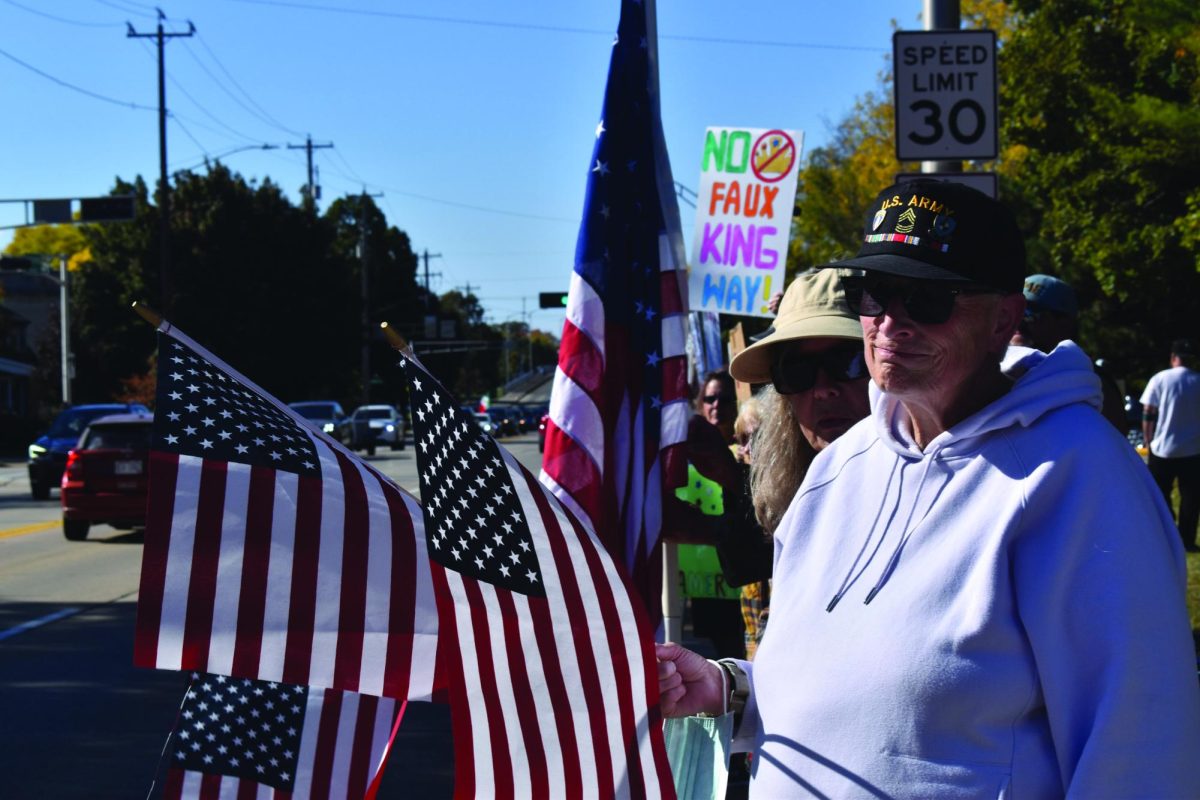After an unexpected Election Day by both national pollsters and UW Oshkosh students, Donald J. Trump was elected to be the next President of the United States.
According to almost all polls Trump’s main opposition, Hillary Clinton, was projected to win by wide margins as late as Tuesday morning.
According to The New York Times, Trump collected 0.2 percent less of the popular vote than Clinton but won handily in the Electoral College, collecting 279 votes there compared to the 218 Clinton managed.
Wisconsin is a swing state, and according to Ballotpedia, it swung toward Trump, who collected 48.7 percent of the vote compared to 46.7 percent support for Clinton.
UWO junior Alex Zadrazil said he was surprised, but believed Trump had a chance all along.
“Never underestimate Americans I guess,” Zadrazil said. “What exactly we’re underestimating I don’t know. Is it stupidity, or just recklessness, or is it we just honestly wanted something different?”
UWO political science professor Tracy Slagter said the Republicans were smart to run a candidate who appealed to voters who felt neglected, although the results of the election were still unexpected.
“It’s surprising in that nearly every poll showed a decisive victory for Clinton,” Slagter said. “But as you look at who turned out and why, it’s pretty clear that the Democrats made a huge miscalculation in running an establishment candidate in an election that was so clearly anti-establishment.”
Slagter said it is hard to tell when and exactly what kind of changes UWO students should expect, although it does seem that Trump and the Republican-controlled Congress will impact the country and the campus.
“There will be changes that students will feel,” Slagter said. “The Affordable Care Act will likely be gone, for example, and they’ll of course witness some big changes to how our government operates domestically and internationally.”
UWO freshman Jay Schultz said although he wanted Trump to win, he didn’t expect him to pull off the victory on Election Day.
“It threw my vibe off when he started pulling away all the Electoral College votes,” Schultz said. “I was actually very surprised and pleased.”
Schultz said Trump winning in Wisconsin was a surprise, and he believes it came down to rural voters making a difference.
“A lot of people in rural America just came out and voted,” Schultz said. “A lot of people that didn’t vote or voted for Gary Johnson threw away their votes, basically.”
UWO senior Kimberly Hetzel said she thought Trump won the election because of their policy differences.
“He had better views than Hillary, and his financial plan was better than Hillary’s, and Hillary had the fact that she was under federal investigation while running for president,” Hetzel said.
Hetzel said she was not surprised Wisconsin ended up voting in favor of Trump because of the climate in the state.
“I think that Wisconsin is definitely looking for a change,” Hetzel said.
UWO sophomore Parker Woldt said he did not expect Trump to win because of the bad press he faced throughout the race.
“I was more surprised because a lot of the mainstream media really defaced Trump throughout the entire presidential election process, and it really seemed like the majority of the people that were having their voices heard were the people against Trump,” Woldt said. “It really didn’t seem like it was going to happen.”
Woldt said that although America was split between Trump supporters and detractors, the focus for people should be on what happens next.
“It happened, and we’re going to deal with it and move forward as best as we can,” Woldt said.
Slagter said it made sense that some people were worried about Trump’s presidency after a long, difficult election season.
“Trump has said a lot of things that make people uncertain about the future, plus he’s an unknown quantity as a politician,” Slagter said. “Taken together, I think people are justified in their wariness about him and about the culture he helped to create during the campaign.”
Slagter said it is now important for the country to look forward, not backward.
“We really need to see how we, as a country, get past the divisiveness of the campaign now that the results are in,” Slagter said. “What kind of country are we now? And how do we feel about that?”








